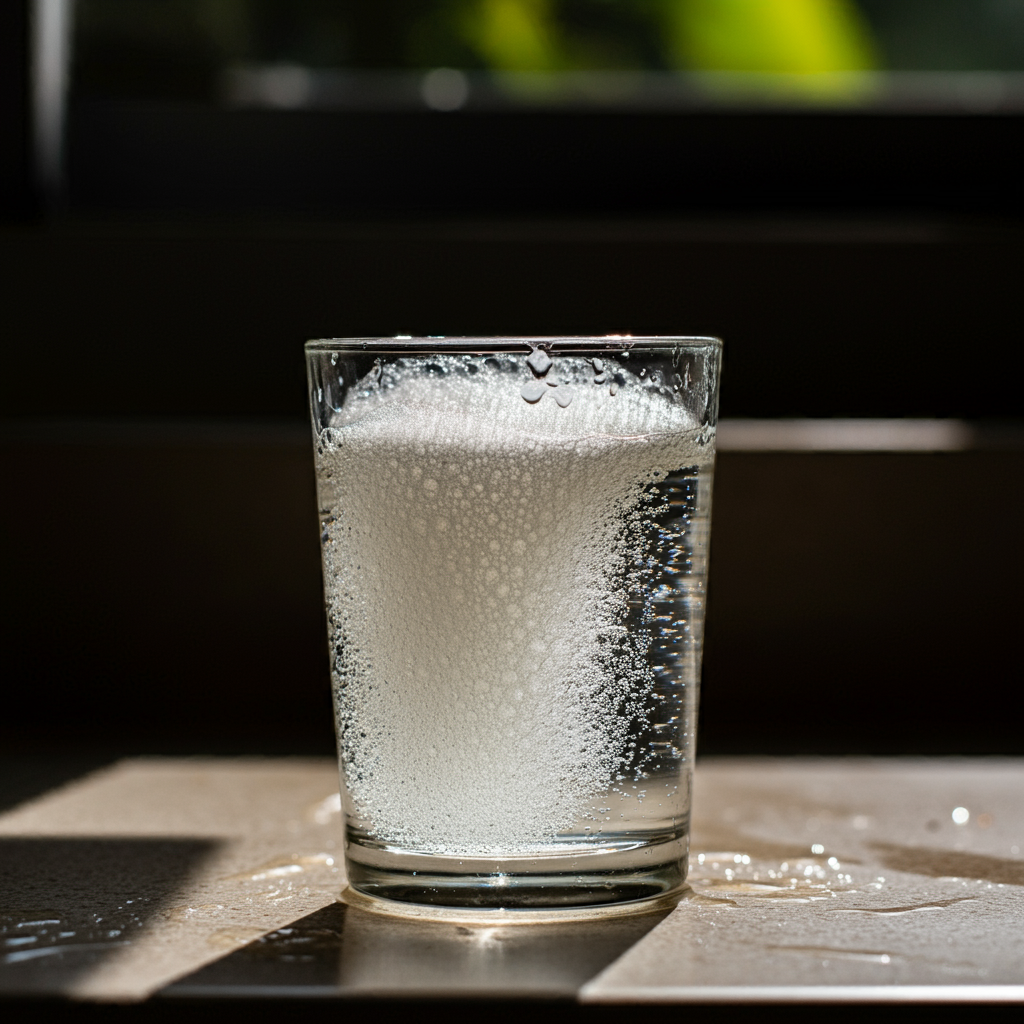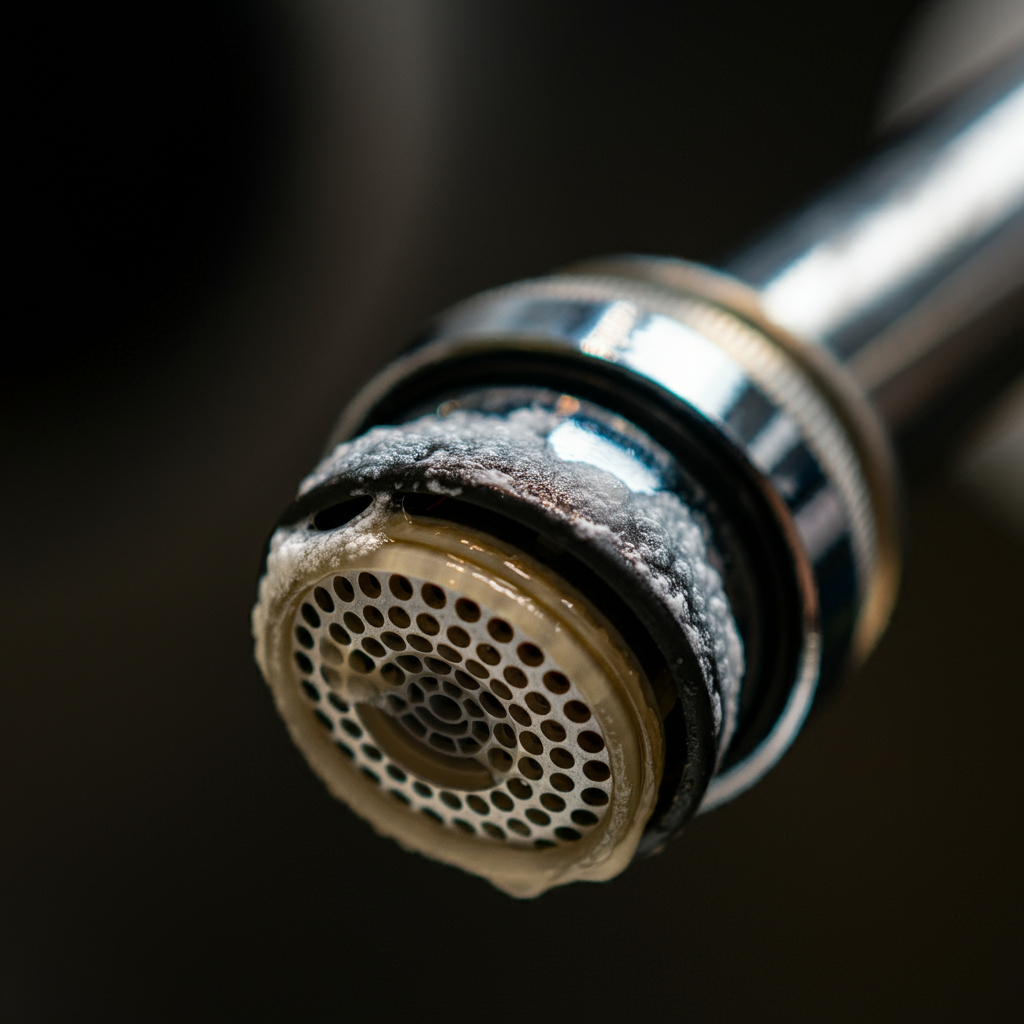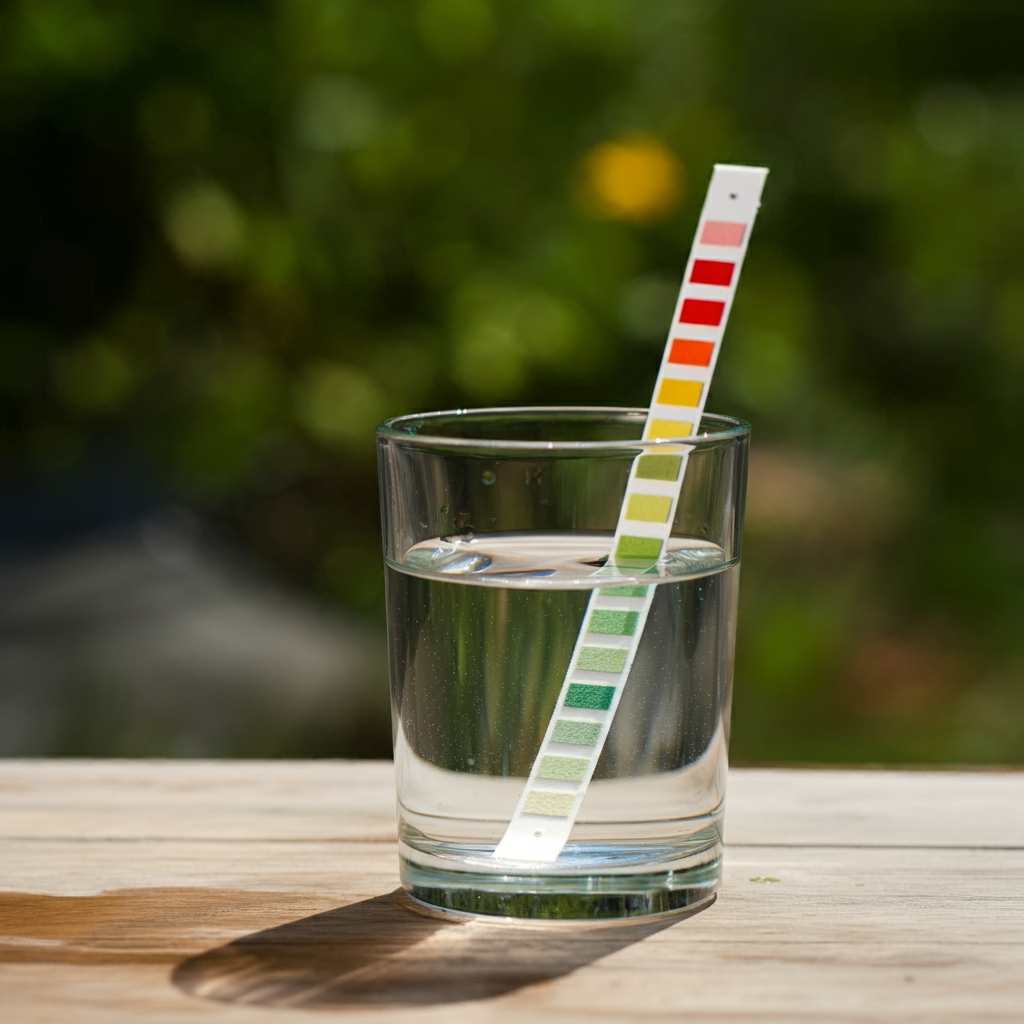Determining your water hardness level is a crucial step in understanding the quality of your water and its potential impact on your home or business. At WaterSoftenerSizing.com, we’re committed to helping you take control of your water and ensure optimal performance for your appliances and plumbing. Hard water, defined as water with a high mineral content, primarily calcium and magnesium, is a common issue affecting many households and businesses. The Water Quality Association (WQA), a leading international trade association representing the residential, commercial, and industrial water treatment industry, has established guidelines and standards for water hardness. The WQA’s comprehensive resources on water quality and treatment provide valuable information on the causes and effects of hard water. The presence of these minerals can lead to a range of problems, from unsightly soap scum buildup and spotty dishes to decreased appliance efficiency and costly plumbing repairs. Hard water can even affect your skin and hair, leaving them feeling dry and irritated. By identifying your water hardness level, you can make informed decisions about water treatment solutions and protect your investment in your home or business. To determine your water hardness level, you have several options available, ranging from simple at-home tests to professional laboratory analysis. In this guide, we’ll explore these methods in detail, empowering you with the knowledge and tools needed to assess your water quality and take action if necessary.
What is Hard Water?
Hard water is water that contains a high concentration of dissolved minerals, primarily calcium and magnesium. These minerals are naturally occurring and are picked up as water travels through rocks and soil. While hard water is generally safe to drink, it can cause a variety of problems in your home or business.
The Culprit Minerals: Calcium and Magnesium
Calcium and magnesium are the two main minerals that contribute to water hardness. Calcium is essential for healthy bones and teeth, and magnesium plays a role in various bodily functions. However, when these minerals are present in excessive amounts in water, they can lead to undesirable consequences. Calcium (Ca2+) This mineral is abundant in the Earth’s crust and is readily dissolved in water as it passes through limestone or dolomite formations. In hard water, calcium can combine with other substances to form scale, a hard, chalky deposit that can build up on surfaces and inside pipes. Magnesium (Mg2+) Similar to calcium, magnesium is also dissolved from rocks and soil as water flows through them. It contributes to water hardness and can also form scale. Additionally, magnesium can react with soap to create soap scum, a sticky residue that can be difficult to clean.
Water Hardness Measurement
Water hardness is typically measured in grains per gallon (gpg) or milligrams per liter (mg/L). One grain per gallon is equivalent to 17.1 milligrams per liter. The Water Quality Association (WQA) provides a widely accepted classification of water hardness levels:
| Water Hardness Level | Grains per Gallon (gpg) |
| Soft | Less than 1 gpg |
| Slightly Hard | 1 – 3.5 gpg |
| Moderately Hard | 3.5 – 7 gpg |
| Hard | 7 – 10.5 gpg |
| Very Hard | More than 10.5 gpg |
Knowing your water’s hardness level is essential for determining the appropriate water treatment solutions. 
Why Should I Test My Water Hardness?
Knowing your water hardness level is essential for several reasons, impacting the longevity of your appliances, the health of your plumbing system, and even your personal well-being. Let’s delve deeper into why testing is so crucial.
Impact on Appliances
Hard water wreaks havoc on appliances that use water, leaving behind mineral deposits that accumulate over time. These deposits, known as scaling, can significantly reduce the efficiency and lifespan of your appliances. For instance, in washing machines, scaling can clog the inner workings and hinder the machine’s ability to clean clothes effectively. According to a study by the Battelle Memorial Institute, hard water can reduce a washing machine’s lifespan by up to 30%. Similarly, dishwashers can suffer from clogged spray arms and cloudy glassware due to mineral buildup. Water heaters, a crucial component of any household, can also experience reduced heating efficiency and premature failure due to scale accumulation on the heating elements.
Plumbing Problems
Scaling isn’t limited to appliances; it can also plague your plumbing system. Mineral deposits can build up inside pipes, restricting water flow and reducing water pressure. Over time, this can lead to costly repairs or even the need for pipe replacement. The buildup of scale in pipes can also create an environment conducive to the growth of bacteria. This can lead to unpleasant odors and potentially contaminate your water supply. Regular testing and treatment of hard water can help prevent these issues and keep your plumbing system functioning smoothly.
Health and Beauty Concerns
While hard water is not considered a health hazard, it can have noticeable effects on your skin and hair. The minerals in hard water can react with soap, making it difficult to lather and leaving behind a sticky residue on your skin. This can lead to dryness, irritation, and exacerbate conditions like eczema. Similarly, hard water can make your hair feel dull, dry, and difficult to manage.
Environmental Protection Agency (EPA) Recommendations
The Environmental Protection Agency (EPA), the federal agency responsible for protecting human health and the environment, does not have a maximum contaminant level (MCL) for hardness in drinking water. However, the EPA recommends a maximum hardness level of 1 gpg (17.1 mg/L) for aesthetic reasons and to minimize the negative impacts on appliances and plumbing.
Understanding Water Hardness Levels
Water hardness is typically measured in grains per gallon (gpg), a unit commonly used in the United States. One grain per gallon is equivalent to 17.1 milligrams per liter (mg/L), a unit used internationally. However, different organizations and regions may use slightly varying scales to classify water hardness levels. The most common scales are as follows: U.S. Geological Survey (USGS)
- Soft: 0 to 60 mg/L as calcium carbonate
- Moderately Hard: 61 to 120 mg/L
- Hard: 121 to 180 mg/L
- Very Hard: More than 180 mg/L
Water Quality Association (WQA)
- Soft: Less than 1 gpg
- Slightly Hard: 1 to 3.5 gpg
- Moderately Hard: 3.5 to 7 gpg
- Hard: 7 to 10.5 gpg
- Very Hard: More than 10.5 gpg
Other Scales: Some organizations, like the Vermont Department of Health, may use a different scale with slightly different ranges. However, the general concept remains the same – higher mineral content translates to harder water. Regardless of the specific scale used, it’s important to understand that even slightly hard water can have noticeable effects on your home and daily life. A water hardness level of 3.5 gpg (60 mg/L) may seem relatively low, but it can still contribute to soap scum buildup, reduce the effectiveness of cleaning products, and leave mineral spots on dishes and glasses.
How to Determine Your Water Hardness Level
Now that we’ve established the importance of knowing your water hardness, let’s explore the different methods available for testing. We’ll cover both convenient at-home tests and professional laboratory analysis.
At-Home Water Hardness Tests
If you’re looking for a quick and easy way to get a general idea of your water hardness, at-home tests are a great option. These tests are readily available, affordable, and can be performed by anyone.
Test Strips
What they are: Water hardness test strips are small, disposable strips coated with chemicals that react to the minerals in your water. How they work: Simply dip the strip in your water for a few seconds, then compare the resulting color change to the provided chart. The color chart corresponds to different levels of water hardness, allowing you to determine if your water is soft, slightly hard, moderately hard, hard, or very hard. Pros:
- Convenient and easy to use.
- Affordable and widely available at home improvement stores, hardware stores, and online retailers.
- Provide a quick assessment of water hardness.
Cons:
- May not be as accurate as other methods.
- Typically only measure total hardness (combined calcium and magnesium) and not individual mineral levels.
- Can be affected by other factors in the water, such as pH or the presence of iron.
Popular Brands:
- Hach
- Watersafe
- Health Metric
Test Kits
What they are: Water hardness test kits are similar to test strips but often provide more detailed information and may be slightly more accurate. How they work: Test kits usually involve adding a few drops of a reagent to a water sample and observing a color change. Some kits may require you to count the number of drops needed to produce a certain color change, while others may use a comparison chart. Pros:
- More accurate than test strips.
- Often provide additional information, such as pH level or the presence of other minerals like iron.
- Can be more cost-effective than professional lab testing.
Cons:
- May require more steps than test strips.
- Still not as accurate as professional lab testing.
Popular Brands:
- API
- Red Sea
- LaMotte
DIY Soap Test
While not as precise as test strips or kits, the DIY soap test can give you a general idea of whether your water is hard or soft. How it works: Fill a clean bottle with water and add a few drops of pure liquid soap (like castile soap). Shake the bottle vigorously for about 15 seconds and observe the results.
- Soft water: Will produce abundant suds that persist.
- Hard water: Will produce minimal suds, and the water may appear cloudy or milky.
Pros:
- Extremely simple and inexpensive.
- Can be done with common household items.
Cons:
- Does not provide a numerical measurement of water hardness.
- Only gives a general indication of hardness (hard or soft).
- Can be affected by the type and amount of soap used.
Professional Water Testing
While at-home tests offer convenience and a general assessment of water hardness, professional laboratory testing provides the most accurate and comprehensive analysis. This is especially important if you have specific concerns about your water quality or are considering investing in a water treatment system. Professional laboratories utilize specialized equipment and techniques to measure the precise concentration of minerals in your water. They can not only determine the total hardness but also identify the levels of individual minerals like calcium and magnesium. Additionally, they can test for other potential contaminants, such as heavy metals, bacteria, or pesticides. When to Consider Professional Testing:
- Accurate Results: If you need precise measurements of water hardness and other potential contaminants.
- Specific Concerns: If you suspect your water may have other issues besides hardness.
- Water Treatment Investment: If you’re planning to install a water softener or other treatment system, accurate testing can help you choose the right equipment.
Where to Get Professional Testing:
- Local Water Utility: Many water utilities offer testing services for their customers, either for free or at a nominal fee.
- Private Laboratories: Numerous certified laboratories specialize in water analysis. You can find a list of certified labs through the EPA’s website or other online resources.
- Water Treatment Companies: Some companies that sell or install water treatment systems may also offer testing services.
What to Expect: Professional testing usually involves collecting a water sample and sending it to a laboratory for analysis. The lab will provide you with a detailed report outlining the mineral content of your water, including hardness levels, as well as any other parameters tested. While professional testing is more expensive than at-home options, it provides valuable insights into your water quality and can help you make informed decisions about water treatment. It’s a worthwhile investment if you have concerns about your water or are considering a significant investment in a water treatment system.
Signs Your Water Might Be Hard
Even before testing, there are several telltale signs that your water may be hard. These signs can be observed in your daily routines and around your home.
- Soap Scum Buildup: Hard water reacts with soap to form soap scum, a stubborn, whitish-gray film that clings to bathtubs, showers, sinks, and faucets. You may notice that soap doesn’t lather well in hard water, and your skin feels dry and filmy after showering.
- Spotty Dishes and Glassware: Hard water can leave spots and streaks on dishes and glassware, even after washing and drying. These spots are caused by mineral deposits left behind as the water evaporates.
- Dry, Itchy Skin and Hair: The minerals in hard water can strip natural oils from your skin and hair, leaving them feeling dry, itchy, and brittle. You may notice that your hair looks dull and lifeless, and your skin feels tight and uncomfortable after bathing in hard water.
- Reduced Water Flow: Over time, mineral deposits can build up inside pipes and appliances, restricting water flow and reducing water pressure. You may notice that your showerhead or faucet has weaker pressure than usual, or that your washing machine takes longer to fill.
- Appliance Issues: Hard water can damage appliances that use water, such as washing machines, dishwashers, and water heaters. You may notice that your appliances are less efficient, require more detergent or soap to function properly, or break down sooner than expected.
If you notice any of these signs, it’s a good idea to test your water hardness to confirm your suspicions. Early detection of hard water can help you take action before it causes significant damage to your plumbing or appliances. 
What to Do If You Have Hard Water
If you’ve determined that your water is hard, you have several options to address the issue. The best solution depends on your specific needs, budget, and the severity of the hardness. Let’s explore some of the most common and effective approaches.
Water Softeners: The Gold Standard for Hard Water Treatment
A water softener is a device that removes calcium and magnesium ions from water through a process called ion exchange. In essence, the softener replaces these hardness minerals with sodium or potassium ions, which don’t cause the same problems as calcium and magnesium. How they work: Water softeners typically use a resin tank filled with small beads that are charged with sodium ions. As hard water passes through the tank, the calcium and magnesium ions are attracted to the beads and swap places with the sodium ions, effectively “softening” the water. The resin beads are periodically regenerated with a salt solution to recharge them with sodium ions. Benefits of water softeners:
- Reduced soap scum: Softened water lathers more easily and rinses cleaner, eliminating soap scum buildup on fixtures and appliances.
- Softer skin and hair: Soft water is gentler on your skin and hair, reducing dryness and irritation.
- Longer appliance lifespan: By preventing scale buildup, water softeners can extend the life of your appliances and plumbing system.
- Reduced energy costs: Scaling in water heaters can reduce efficiency, leading to higher energy bills. Water softeners prevent scaling and can help lower your energy consumption.
Types of water softeners:
- Salt-based softeners: These are the most common type and use sodium chloride (table salt) to regenerate the resin beads.
- Potassium chloride softeners: These use potassium chloride instead of sodium chloride for regeneration, which may be a better option for individuals on low-sodium diets.
Considerations when choosing a water softener:
- Size: The size of the softener should be based on your water hardness level and water usage. A professional water treatment expert can help you determine the appropriate size for your home or business. (We can help you determine the size you need! Use our Water Softener Sizing Calculator).
- Type: Choose between salt-based or potassium chloride softeners based on your dietary needs and preferences.
- Efficiency: Look for softeners with high-efficiency ratings to minimize salt and water usage.
- Maintenance: Consider the maintenance requirements of different models, such as the frequency of salt refills and the need for professional servicing.
Water softeners are a highly effective solution for hard water, but they may not be suitable for everyone. If you have concerns about sodium intake or are looking for a more affordable option, other water treatment solutions are available.
Other Options for Hard Water Treatment
- Water Conditioners: These devices don’t remove minerals from water, but they alter their structure to prevent them from forming scale.
- Reverse Osmosis Systems: These systems use a semipermeable membrane to filter out a wide range of contaminants, including hardness minerals. However, they are primarily used for drinking water and can be expensive.
- Filtering Pitchers: These pitchers use filters to remove some minerals and improve the taste of water, but they don’t typically address the full range of hard water issues.
The best solution for you will depend on your specific needs and budget. At WaterSoftenerSizing.com, we can help you evaluate your options and choose the right water treatment system for your home or business.
Water Softener Sizing: Why It’s Crucial
Choosing the right size water softener is essential for ensuring optimal performance and efficiency. A softener that is too small won’t be able to effectively treat all the water your household or business uses, while a softener that is too large will waste water and salt during regeneration cycles.
Factors Influencing Water Softener Size
Several key factors come into play when determining the appropriate size for your water softener:
- Water Hardness Level: The harder your water, the more capacity your softener will need to remove minerals effectively.
- Household Size/Water Usage: Larger households or businesses with higher water usage will require a softener with greater capacity.
- Daily Water Consumption: Estimate your daily water usage in gallons. This information can be found on your water bill or by using an online water usage calculator.
- Flow Rate: The flow rate, measured in gallons per minute (GPM), is the amount of water that can pass through the softener at any given time. It’s essential to choose a softener with a flow rate that can meet your peak demand periods.
Water Softener Sizing Calculator: Your Personalized Solution
At WaterSoftenerSizing.com, we understand that calculating the right water softener size can be complex. That’s why we offer a free, user-friendly Water Softener Sizing Calculator to simplify the process. Our calculator takes into account all the essential factors mentioned above, providing you with a personalized recommendation for the ideal softener size based on your specific needs. Simply input your water hardness level, household size or daily water usage, and desired flow rate, and our calculator will do the rest.
Why Choose WaterSoftenerSizing.com?
We specialize in accurate, personalized water softener sizing solutions. Our team of water treatment professionals utilizes industry-leading tools and methodologies to determine the ideal softener size for your unique requirements. We are committed to empowering homeowners and businesses to make informed decisions about water softening systems. Our expertise ensures that you invest in a system that delivers optimal results and long-term value.
Taking Control of Your Water Quality
Understanding and addressing your water hardness level is a proactive step towards maintaining a healthy home or business environment. By recognizing the signs of hard water and utilizing the various testing methods available, you can make informed decisions about water treatment solutions. Whether you opt for convenient at-home tests like strips or kits, or choose the precision of professional laboratory analysis, knowing your water hardness level empowers you to take action. From soap scum buildup and appliance damage to potential skin and hair issues, hard water can have a significant impact on your daily life and long-term investments. At WaterSoftenerSizing.com, we believe that everyone deserves access to soft, clean water. Our expertise in water softener sizing ensures that you choose the right system to address your specific needs and enjoy the benefits of softened water for years to come.
Key Takeaways:
- Hard water is a common issue caused by high mineral content, primarily calcium and magnesium.
- Testing your water is crucial to understand its hardness level and potential impact on your home or business.
- At-home tests like strips and kits offer a convenient way to assess water hardness.
- Professional laboratory testing provides the most accurate and comprehensive analysis.
- Signs of hard water include soap scum buildup, spotty dishes, dry skin and hair, reduced water flow, and appliance issues.
- Water softeners are a highly effective solution for removing hardness minerals.
- Proper water softener sizing is essential for optimal performance and efficiency.
Ready to take the next step? Use our free Water Softener Sizing Calculator to determine the perfect softener size for your needs and discover how softened water can transform your home or business.

Craig “The Water Guy” Phillips is the founder of Quality Water Treatment (QWT) and creator of SoftPro Water Systems.
With over 30 years of experience, Craig has transformed the water treatment industry through his commitment to honest solutions, innovative technology, and customer education.
Known for rejecting high-pressure sales tactics in favor of a consultative approach, Craig leads a family-owned business that serves thousands of households nationwide.
Craig continues to drive innovation in water treatment while maintaining his mission of “transforming water for the betterment of humanity” through transparent pricing, comprehensive customer support, and genuine expertise.
When not developing new water treatment solutions, Craig creates educational content to help homeowners make informed decisions about their water quality.



That is the precise blog for anyone who wants to find out about this topic. You notice a lot its nearly hard to argue with you (not that I really would need匟aHa). You definitely put a new spin on a subject thats been written about for years. Nice stuff, just great!